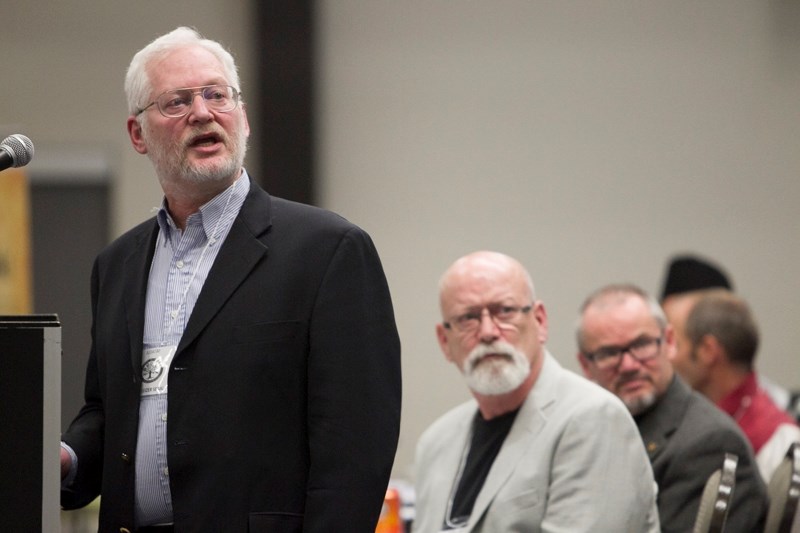Various viewpoints from four different ideologies on the topic of forgiveness, punishment and justice were shared during attended the seventh world religions conference hosted at the Olds College Alumni Centre on Nov. 7.
The event, which was attended by about 200 people, was sponsored by the Ahmadiyya Muslim Community's Calgary branch and featured Guillermo Barron talking about the atheist view on the topic, while Eleizer Segal spoke about the Jewish perspective, Marinus Jackson spoke about Christianity's view and Umair Khan spoke about Islam's view on the topic. After each of the presenters spoke, they fielded several questions from audience members. The purpose of the event, according to organizers, was to promote interfaith dialogue and promote understanding of various faiths.
Barron said that while evolutionary psychologists say that anger and revenge are vital tools, modern governments guarantee rights, so revenge isn't necessary. He said punishment should be proportional.
“The need for revenge, even when we disguise it in closure, is strong. The state should have no role in feeding our need for revenge,” he said.
Segal said that Judaism is conflicted on forgiveness, punishment and justice, with many scholars taking different viewpoints of the Torah's seemingly ambivalent stance on the concepts. The Torah is the holy book of Judaism. Segal said the best that can be done is to strike a balance between justice and mercy.
“There are no easy answers,” he said.
Jackson said while reconciliation is a central theme in Christianity, it isn't possible without forgiveness and justice. Creation, fall and redemption are also key concepts.
“Justice is actually a conflicted term. Whose justice are we talking about? Justice is about relationship. Punishment isn't what satisfies justice,” he said.
Khan explained that one of the central questions of Islam concerning forgiveness, punishment and justice is what should the limit be on forgiveness. The prophet Mohammed believcd that while people have the right to retribution against those who hurt them, he believed the response had to proportional. Islam also says that the victim needs to make a decision on whether to forgive or punish the perpetrator.
“In Islam, everyone is responsible for their own sin. If you make a mistake, you must strive towards God,” Khan said.
Segal was asked who under the Jewish faith, is forgiven and who is punished?
He said under the teachings of Judaism, nobody has the right to inflict harm on others.
“You have to wrestle with yourself,” he said.
Another audience member asked Khan if the forgiveness shown by Mohammed can be followed. He responded by saying forgiveness can be shown if the Qur'an – Islam's holy book – is followed.
“It coaches us with different techniques like forgiveness. At the end of the day we're all humans and by (practising forgiveness) we will all be better,” he said.



